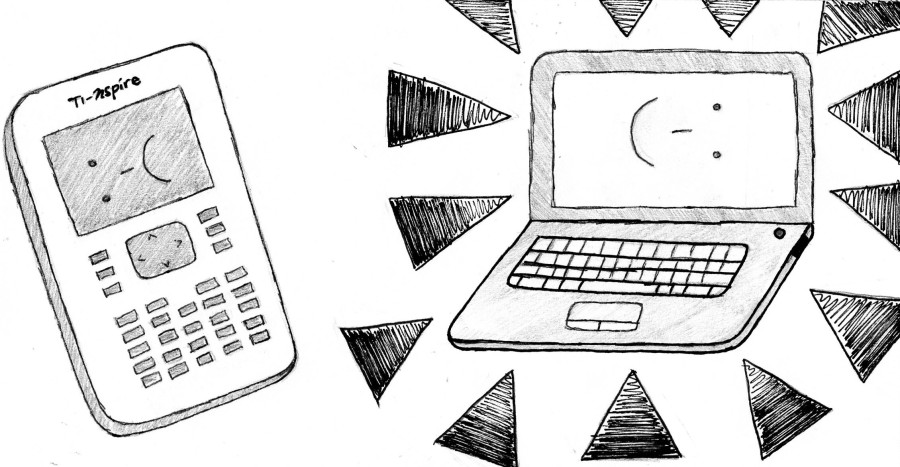Math Department reconsiders calculator usage
February 5, 2016
South’s Math Department is in the initial stages of deciding whether a gradual shift towards less calculator use would be beneficial for students.
While South still remains committed to the calculator, there is an interest to replace calculator use with computer programs, according to Philip Gartner, Math Department instructional supervisor.
“Math teachers are adapting and looking at what the advantages are of the new technology and how they can harness that to improve learning, to make class more engaging or to find programs that maybe offer an advantage over what the calculator has,” Gartner said.
Gartner stressed the delicacy of this potential change, as calculators are also used outside the Math Department. Changing the policy could have a negative effect on other departments, teachers and organizations.
“[The Math Department] doesn’t get to dictate to the rest of the world,” Gartner said. “There are certain entities that we can’t control, like the ACT or the College Board, that are still going to want a hand-held calculator, at least for the foreseeable future.”
While computers may not be practical for standardized testing, they are still applicable in the classroom. When math teacher Joe Karlovsky used a program called Desmos to quiz his students, he was pleased with the results.
“[Desmos] was very accessible to [students of all] learning and ability types [because students] only have to follow maybe two or three steps instead of what I might say is four, five or six steps in the [calculator],” Karlovsky said.
According to Gartner, a change in calculator policy could also benefit students by not having to purchase them or bring a calculators to school.
“We also want to be ready to make that move when it is appropriate because it would offer cost savings to families, and a simplicity if we can cut down by one the number of devices that students need to have for school,” Gartner said.
According to math teacher Steve Farber, one opportunity for computer programs to overtake calculators lies in the Partnership for Assessment of Readiness for College and Careers (PARCC) Test. Its ability to block a user from everything except the test could be a potential solution.
“[During] PARCC testing, for example, they give you a calculator and lock the ability to get to Wikipedia or otherwise use your computer,” Farber said. “[But] until we get to a point where the Chromebook has the ability to allow you to do certain things but limit you from doing other things, we’re gonna stick with the calculators.”



